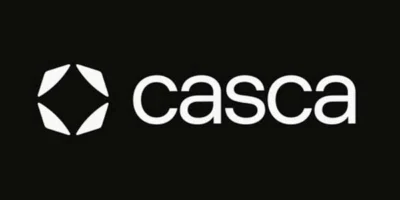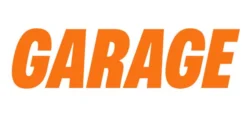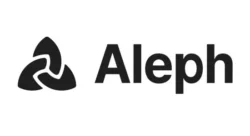
New York, NY - Aug 20, 2025 (UTC) - Casca, the first AI-native loan origination platform designed to streamline lending processes, today announced the closing of a $29 million Series A funding round. Led by General Catalyst, the round includes participation from existing investors and new backers, such as Y Combinator and Khosla Ventures. This funding will propel Casca’s mission to revolutionize the lending industry by leveraging artificial intelligence to enhance efficiency, reduce costs, and improve decision-making for financial institutions.
Funding Details
Casca secured $29 million in its Series A funding round, announced on August 19, 2025. The round was led by General Catalyst, with participation from existing investors, including Y Combinator, and new investors, such as Khosla Ventures. This brings Casca’s total funding to $35 million, following a $6 million seed round in 2023. The company, which emerged from stealth in early 2025, has already partnered with several mid-sized banks and fintech firms to deploy its AI-driven platform, demonstrating early traction in the lending market.
Strategic Goals and Use of Funds
Casca aims to redefine loan origination by integrating AI to automate and optimize the lending process. The Series A capital will be allocated across the following key priorities:
- Platform Expansion: Enhance the AI platform’s capabilities to support a broader range of loan types, including personal, mortgage, and small business loans.
- Market Penetration: Scale partnerships with financial institutions, targeting mid-sized banks, credit unions, and fintech companies across the U.S. and Europe.
- Team Growth: Expand engineering and data science teams to accelerate AI model development and improve platform reliability and scalability.
- Regulatory Compliance: Invest in compliance tools to ensure adherence to global financial regulations, building trust with institutional partners.
- Customer Success: Develop robust onboarding and support systems to drive adoption and ensure seamless integration for clients.
These efforts aim to address inefficiencies in the $4 trillion U.S. lending market, where outdated systems and manual processes often delay approvals and increase costs.
Historical Funding and Growth
| Funding Round | Date | Amount | Lead Investors | Other Participants |
|---|---|---|---|---|
| Seed | June 2023 | $6 Million | Y Combinator | Undisclosed |
| Series A | August 2025 | $29 Million | General Catalyst | Y Combinator, Khosla Ventures |
Since its seed round in June 2023, Casca has grown from a concept to a market-ready platform, launching in early 2025. The company has secured partnerships with over 10 financial institutions, processing thousands of loan applications monthly and achieving a 30% reduction in processing times for early adopters.
Casca’s Technology
Casca’s AI-native platform automates the entire loan origination process, from application intake to approval. Key features include:
- AI-Driven Decisioning: Machine learning models assess creditworthiness, predict default risks, and tailor loan terms in real-time, reducing manual underwriting by up to 70%.
- Automated Workflows: Streamlines document collection, verification, and compliance checks, integrating with existing banking systems via APIs.
- Predictive Analytics: Uses historical and real-time data to optimize loan pricing and terms, improving lender profitability.
- Scalable Architecture: Cloud-based infrastructure supports high transaction volumes, enabling banks to handle peak demand without delays.
- Regulatory Integration: Embeds compliance checks for regulations like TILA and RESPA, minimizing risk for lenders.
The platform charges a subscription fee based on transaction volume, with a low per-loan cost, making it accessible for institutions of varying sizes.
Industry Impact and Challenges
Casca’s technology has the potential to disrupt the $4 trillion U.S. lending industry by reducing origination costs and improving borrower experiences. Early adopters report faster loan approvals and a 20-30% reduction in operational costs. However, challenges include:
- Regulatory Hurdles: Navigating complex financial regulations across jurisdictions requires ongoing investment in compliance.
- Adoption Barriers: Convincing traditional banks to replace legacy systems with AI-driven solutions demands significant education and trust-building.
- Data Privacy: Ensuring robust cybersecurity to protect sensitive borrower data is critical, given rising concerns about AI and data breaches.
Recent regulatory support for fintech innovation, including streamlined licensing for digital lenders, provides a favorable environment for Casca’s growth.
Market Context and Industry Trends
The lending industry is undergoing a digital transformation, driven by rising borrower expectations and competition from fintechs. Traditional loan origination systems, often reliant on manual processes, are plagued by delays and high costs, with approval times averaging 30-60 days for mortgages. Trends include:
- AI Adoption: Financial institutions are increasingly adopting AI for credit scoring, fraud detection, and process automation.
- Fintech Growth: Non-bank lenders, like SoFi and Rocket Mortgage, are capturing market share with digital-first platforms.
- Regulatory Support: Policies encouraging fintech innovation, such as the OCC’s fintech charter, are easing barriers for AI-driven solutions.
- Consumer Demand: Borrowers expect faster, transparent loan processes, pushing banks to modernize.
Casca’s platform aligns with these trends, positioning it to capture a growing share of the loan origination market.
Stakeholder Perspectives
General Catalyst’s lead investor praised Casca’s ability to “redefine lending efficiency,” noting its potential to save billions in operational costs. Y Combinator highlighted the founding team’s deep expertise in AI and finance as a key driver of early success. CEO Sarah Thompson emphasized the platform’s mission to “make lending faster, fairer, and more accessible,” aligning with broader financial inclusion goals. Early clients, including a regional bank, reported a “game-changing” reduction in loan processing times, boosting customer satisfaction.
Stakeholder Insights
Stakeholders express cautious optimism about Casca’s trajectory. Thompson noted that the platform’s early success stems from its focus on mid-sized institutions, which are agile yet underserved by legacy systems. Investors like Khosla Ventures see long-term potential in Casca’s scalability to global markets, though they acknowledge risks in regulatory shifts. Clients value the platform’s ease of integration but stress the need for ongoing support to navigate AI adoption. The consensus is that Casca’s technology could set a new standard for loan origination, provided it maintains robust compliance and cybersecurity.
About Casca
Founded in 2023 by Sarah Thompson, Casca is a New York-based fintech startup focused on AI-driven loan origination. The company’s platform automates and optimizes the lending process for financial institutions, serving banks, credit unions, and fintechs. Casca’s mission is to make lending faster, more efficient, and accessible by leveraging artificial intelligence. Since its launch in 2025, Casca has processed thousands of loans, serving institutions with assets ranging from $500 million to $10 billion. The company is headquartered in New York, NY, with a growing team of AI and finance experts.
Future Outlook
Casca plans to triple its client base by 2026, targeting larger banks and international markets in Europe and Asia. The company aims to expand its platform to support additional loan types, such as auto and commercial loans, while enhancing AI models for greater accuracy. With supportive fintech policies and growing demand for digital lending, Casca projects a 40% annual revenue growth rate over the next three years. Long-term, the company seeks to become the leading AI platform for global loan origination, potentially capturing 5% of the U.S. market by 2030.
Media Contact
Emily Chen
Casca
emily.chen@casca.ai





